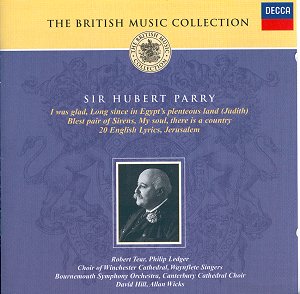|
|
Search MusicWeb Here |
|
 |
||
|
Founder:
Len Mullenger (1942-2025) Editor
in Chief:John Quinn
|
|
|
Search MusicWeb Here |
|
 |
||
|
Founder:
Len Mullenger (1942-2025) Editor
in Chief:John Quinn
|

|
Sir Charles Hubert Hastings PARRY (1848-1918)
BUY NOW AmazonUK AmazonUS
|
|
|
Return to Index |